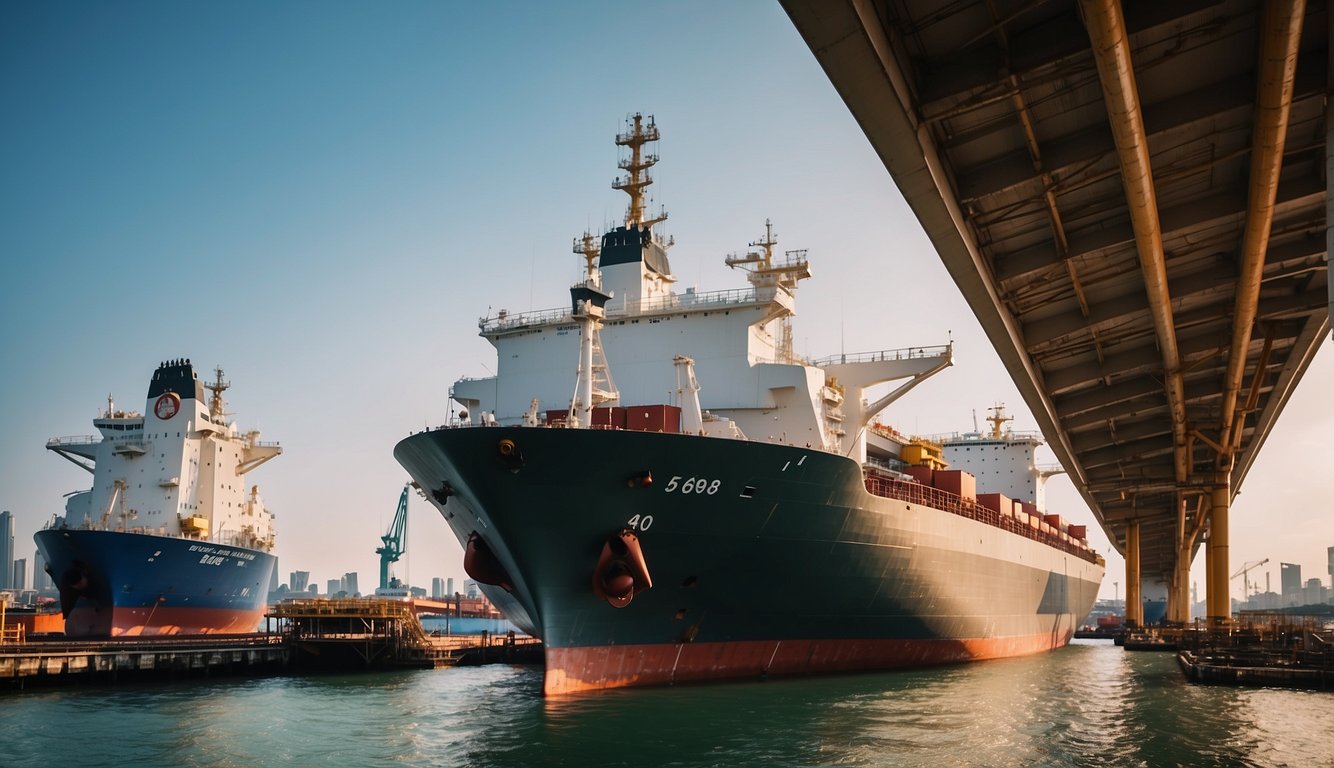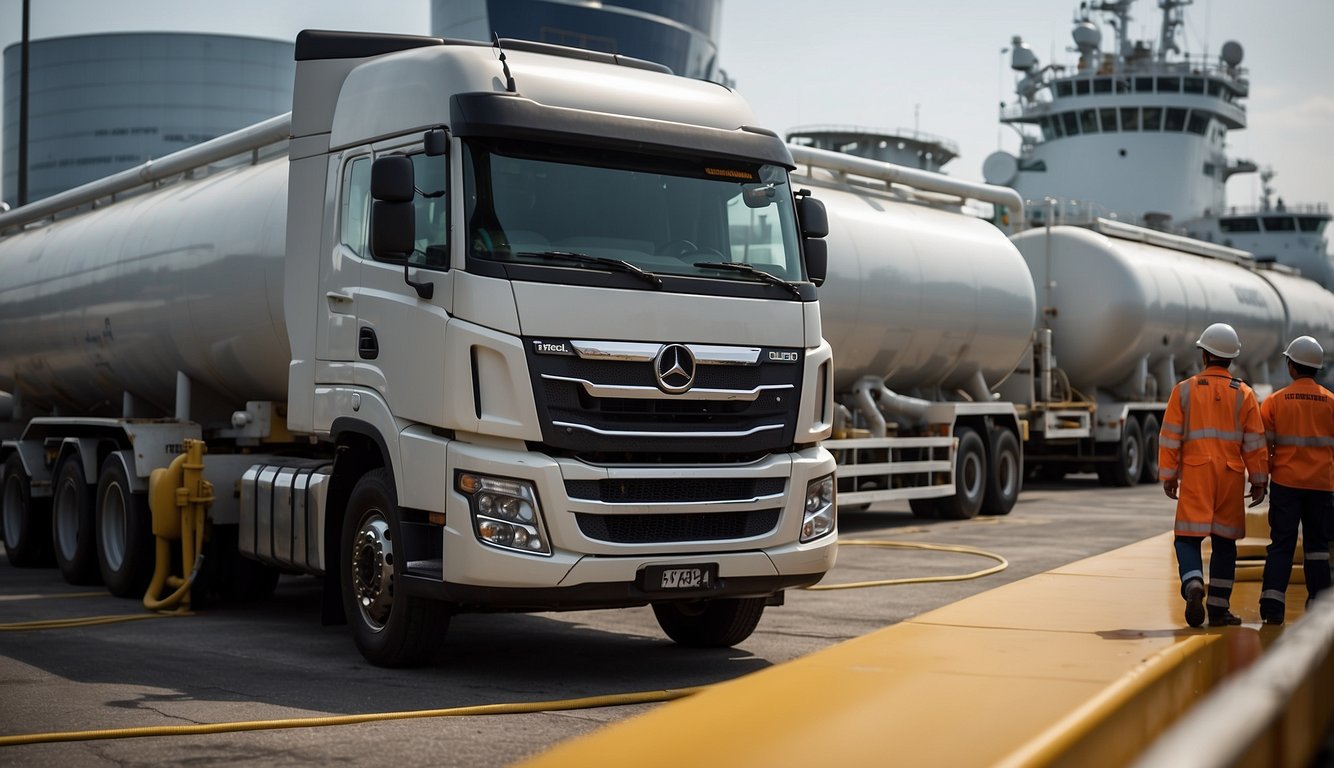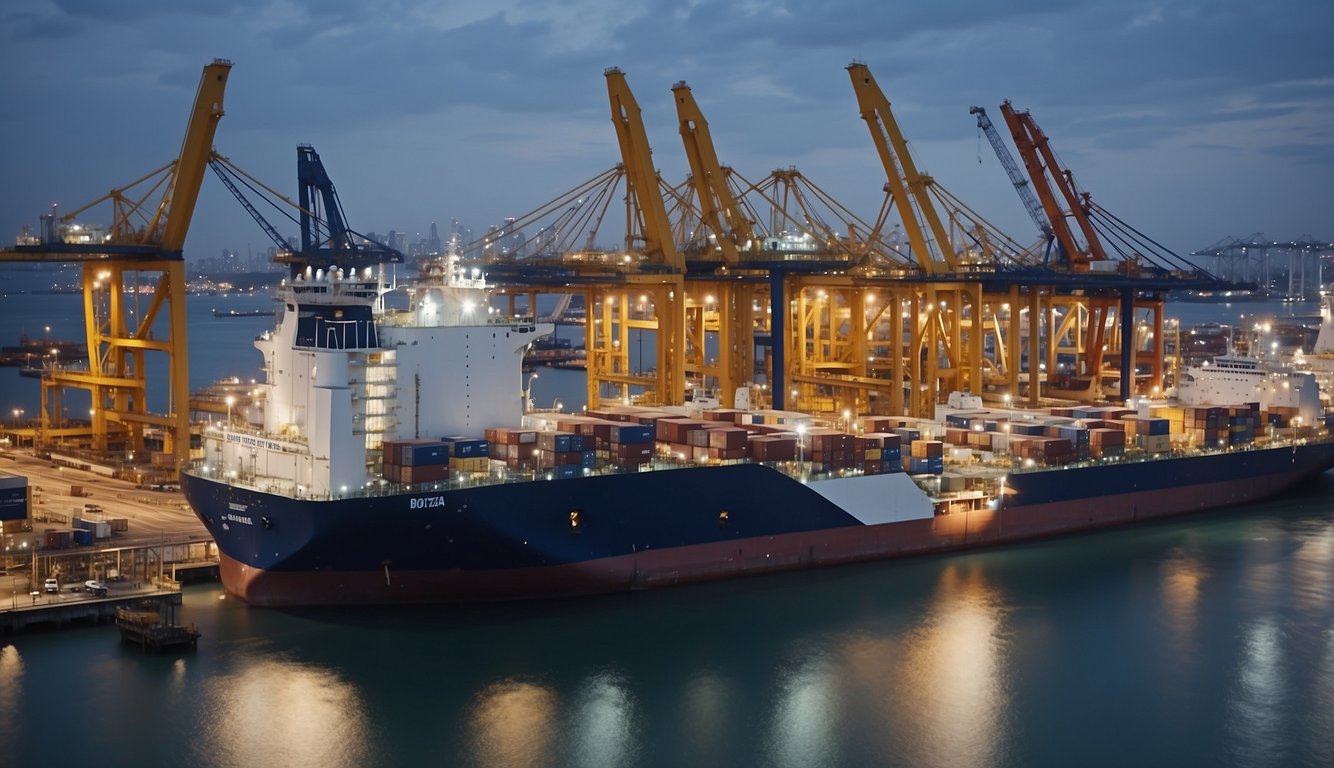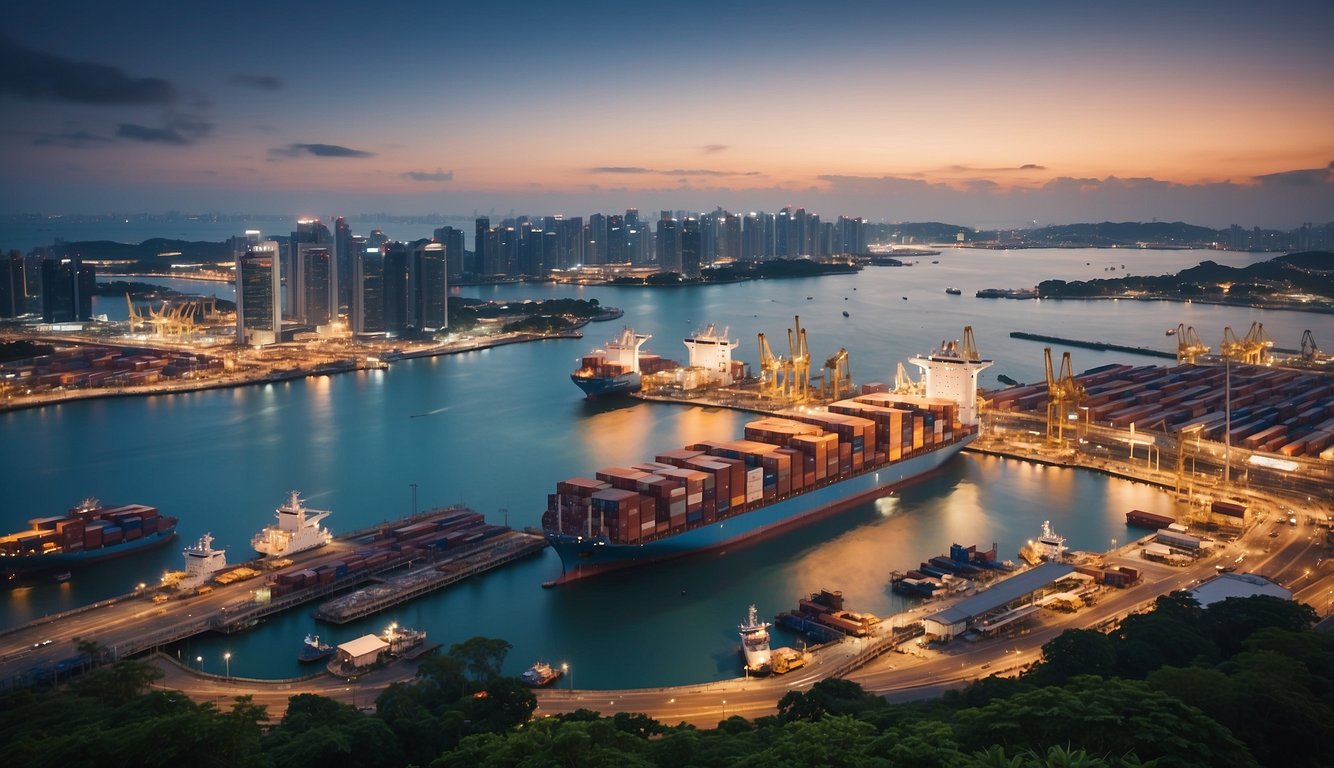Bunkering Services Singapore
Bunkering services in Singapore have become increasingly important, given the country’s position as one of the world’s busiest ports. Bunkering refers to the process of supplying fuel to ships, and Singapore is a leading global hub for this activity. As such, the country has implemented strict regulations to ensure that bunkering services are safe, reliable, and transparent.

In Singapore, all bunker suppliers, bunker craft operators, bunker surveyors, and bunker surveying companies operating in the port are required to be licensed by the Maritime and Port Authority of Singapore (MPA). The Code of Practice for Bunkering, or SS 600, promotes a framework for bunkering operations that assures customers of the bunker quality and quantity loaded in Singapore. Singapore’s commitment to maintaining high standards of bunkering services has helped the country become a leader in the industry.
Key Takeaways
- Singapore is a leading global hub for bunkering services due to its strategic location as one of the world’s busiest ports.
- The Maritime and Port Authority of Singapore (MPA) regulates all bunker suppliers, bunker craft operators, bunker surveyors, and bunker surveying companies operating in the port.
- Singapore’s Code of Practice for Bunkering, or SS 600, promotes a safe, reliable, and transparent framework for bunkering operations.
Bunkering Services Overview

If you are looking for reliable and high-quality bunkering services in Singapore, you are in the right place. Singapore is one of the largest and most important bunkering ports in the world, with a well-established infrastructure and a range of reputable service providers.
Bunker Fuel Types and Standards
In Singapore, you can find a variety of bunker fuel types to suit your needs. These include marine gas oil (MGO), marine diesel oil (MDO), intermediate fuel oil (IFO), and low sulfur fuel oil (LSFO). The fuels are subject to strict quality standards and regulations, such as the Singapore Standard Code of Practice for Bunkering (SS 600) and the Quality Management for Bunker Supply Chain standard (SS 524). These standards help to ensure that the bunker fuels meet the required specifications and are safe to use.
Maritime and Port Authority of Singapore (MPA) Regulations
The MPA is the regulatory body that oversees the bunkering industry in Singapore. All bunker suppliers, bunker craft operators, bunker surveyors, and bunker surveying companies operating in the port of Singapore are required to be licensed by the MPA. The MPA also regulates the use of mass flow meters (MFMs) for bunkering operations, which help to improve accuracy and transparency in the bunkering process.
Key Bunker Suppliers in Singapore
Singapore has a range of licensed bunker suppliers that offer a variety of services to meet your needs. Equatorial Marine Fuel Management Services Pte Ltd is a one-stop service provider for bunkering in Singapore, offering a fully-owned and controlled supply chain. Triton Bunkering Services Pte Ltd is another reputable supplier that offers high-quality bunkering services to elevate the shipping industry in Singapore. Other key bunker suppliers in Singapore include Excell, Minerva Bunkering, TFG Marine, and Trafigura.
In summary, Singapore offers a range of reliable and high-quality bunkering services to meet your needs. The strict regulations and standards ensure that the bunker fuels meet the required specifications and are safe to use. With a range of reputable service providers, you can be sure to find the right bunkering solution for your needs.
Innovations and Future of Bunkering

As a leading bunkering hub, Singapore is constantly innovating to meet the needs of the shipping industry. Here are some exciting developments to look out for in the future of bunkering services in Singapore.
Alternative Fuels and Eco-friendly Initiatives
The International Maritime Organization (IMO) has set a target to reduce greenhouse gas emissions from shipping by at least 50% by 2050. To achieve this goal, alternative fuels such as liquefied natural gas (LNG), biofuels, and hydrogen are being explored as potential marine fuels. Singapore is already making progress in the bunkering of biofuels, with approximately 70,000 tonnes of biofuel supplied to ocean-going vessels across more than 40 biofuel bunkering operations. Singapore is also exploring the use of LNG as a marine fuel, with the first LNG bunkering station in Asia located in Singapore.
Technological Advancements in Bunkering
To boost efficiency and transparency during the bunkering process in Singapore, the Maritime and Port Authority of Singapore (MPA) will launch its digital bunkering initiative to implement electronic bunkering processes and documentation such as e-BDN by November 2023. The initiative will also include the use of mass flow meters, which accurately measure the quantity of marine fuel delivered during bunkering. This technology will provide a more accurate and transparent measurement of the amount of fuel delivered, reducing the risk of disputes between bunker suppliers and buyers.
Global Bunkering Trends and Singapore’s Role
As the world’s largest bunkering port, Singapore plays an important role in shaping global bunkering trends. With the rise of alternative fuels and intensifying competition from other ports in Asia, Singapore is exploring new ways to maintain its competitive edge. This includes offering quality products at competitive prices, investing in new technologies, and attracting experts in the field. Singapore is also looking to expand its reach beyond Asia, with the recent opening of a representative office in Shanghai to tap into China’s growing demand for bunkering services.
In conclusion, Singapore’s bunkering services are constantly evolving to meet the needs of the shipping industry. With a focus on alternative fuels, technological advancements, and global trends, Singapore is poised to remain a leading bunkering hub in the years to come.
Frequently Asked Questions

How can I find the top-rated bunker suppliers in Singapore?
Finding the top-rated bunker suppliers in Singapore is easy. You can visit the Maritime and Port Authority of Singapore (MPA) website for a list of accredited bunker suppliers. The MPA also provides a list of licensed bunker tanker operators, so you can be sure that you are dealing with a reputable supplier.
What are the latest procedures for bunkering in Singapore?
The latest procedures for bunkering in Singapore are outlined in the Singapore Standard Code of Practice for Bunkering (SS 600). The SS 600 provides guidelines for quality management for the entire bunker supply chain, ensuring that bunker suppliers maintain an unbroken chain of control over bunker supplied in Singapore.
Which companies provide LNG bunkering services in the Lion City?
There are several companies that provide LNG bunkering services in Singapore. FueLNG, a joint venture between Keppel Offshore & Marine and Shell Eastern Petroleum, is the first licensed LNG bunker supplier in Singapore. Other companies that provide LNG bunkering services in Singapore include Pavilion Energy and Total Marine Fuels.
Where can I access the official list of licensed MPA bunker tankers?
The official list of licensed MPA bunker tankers can be found on the MPA website. The list provides information on the bunker tankers that are licensed to operate in Singapore, including their names, license numbers, and contact details.
What steps are involved in obtaining an MPA bunker surveyor license?
To obtain an MPA bunker surveyor license, you must first meet the qualifications set out by the MPA. You must also complete a training course and pass an examination. Once you have obtained your license, you will be able to carry out bunker surveys in Singapore.
Can you tell me about the trends in Singapore’s bunker sales volume?
Singapore is one of the world’s largest bunkering ports, and bunker sales volume in the Lion City has been steadily increasing over the years. According to the MPA, Singapore’s bunker sales volume reached a record high of 50.6 million tonnes in 2021, up from 49.8 million tonnes in 2020. This growth can be attributed to Singapore’s strategic location, efficient port operations, and strong regulatory framework.




